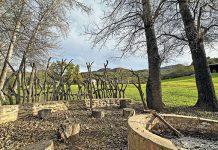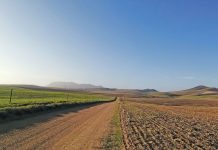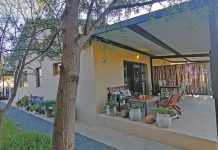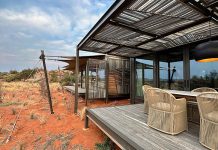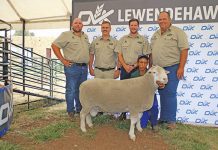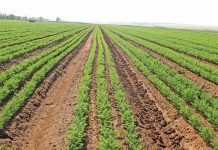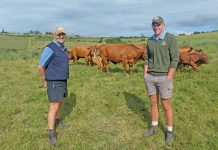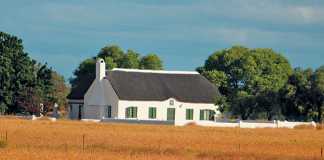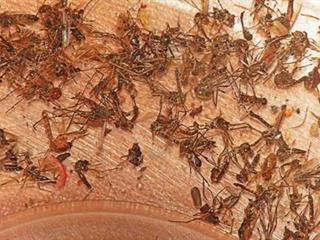
There are not only four seasons in a year. There are many, depending on who you are, where you are and what you’re doing. Rugby used to be played in winter and cricket was a summer sport, but now that they have become a job, both are year-round occupations. The hunting season is in winter for most people, and if you’re an inland bass or kurper fisherman, you’ll be out on the water in summer, while those with a passion for trout will cast most of their flies in winter.
As a field sportsman, I fish or hunt whenever there’s an opportunity, irrespective of the time of year. But as a naturalist in the northern Lowveld, there is just one season for me. It is when the fragrance of rain-wet soil hangs in the air, and the bush is lush and green, full of fluttering butterflies, impala fawns and tiny warthog piglets; when the cuckoo’s calls and the sound of songbirds is heard from dawn till dusk, after which the frog-chorus takes over to continue with the symphony of life. This is summertime in the bushveld. This is my season, stretching from one year to the next.
But this past season was very strange – a season to remember. Many will remember it for all the ‘people-things’ that happened, such as the centenary of the sinking of the Titanic, the violent overthrow of foreign governments by their citizens, and the ongoing financial crisis on the other side of the world. Closer to home, we heard the power-struggling rumblings within the ruling party, saw the daily discontent of the poor over chronic non-delivery by government, and the greatest combined act of defiance this country has seen: law-abiding citizens opposing a corrupt e-tolling scheme.
Although I know these things are bound to have a ripple effect on my life, even here in the bush, what concerns me more are the local signs I see of what could be a change in global weather patterns, the effects of which we have no way of comprehending. In this sense, this was indeed a season to remember. It began with a late spring after an unusually long and cold winter, especially for a warm place such as Hoedspruit.
Although spring was late, the rain was not; it started immediately after the last winter cold. And it didn’t rain again for months. The rest of the year we were besieged by the worst heat I have experienced in a long time. For days on end, the temperature surged into the 40s. The grass that sprouted and started to grow lush after the early rain soon shrivelled and never reached the flowering stage. By mid-January the veld was so tinder-dry it could be set alight anywhere.
The heavens open
Then, on the night of 18 January it started to rain softly at midnight. At dawn, nature’s fury was unleashed upon us in the most devastating flood this place had experienced in living memory. In some areas, up to 700mm fell in a matter of six hours. Ironically, this over-abundance of water did not solve the problems caused by the lack of rain earlier. Within 10 days, most of the water had disappeared downstream, and with the majority of dams demolished and water supply infrastructure destroyed or incapacitated, the area experienced a water crisis.
For three months, Hoedspruit lived on bottled water. The effect of this bizarre weather on humans will linger for years, as many suffered trauma and damage, with some even losing all their possessions. Experts warn us that this is the kind of weather we can expect when climate change really starts to take effect. What surprised me, however, was the apparent effect of the abnormal weather on the small creatures that call the bushveld home.
We tend to concentrate on the large animals, which is short-sighted as they all ultimately depend on the small creatures – the micro fauna and flora – forming the base of the food pyramid. The first thing I noticed at the start of the season was that there were very few insects about. I usually spend hours every day and evening photographing the bizarre insects, spiders and scorpions that come buzzing, hopping and crawling into the house.
The mosquitoes are normally terrible. When I work at my computer at night, they drive me crazy. Being so hot, it is impractical to close the windows, so last winter I had gauze installed on the doors and windows to keep them out.
I needn’t have bothered. This summer, they had virtually disappeared. And there were no moths, beetles or stink bugs in the house, either. Only a few praying mantids with nothing to eat, and a handful of thin geckos.
There are normally many geckos, as well as grey tree frogs that sit like little statues on the TV, fridge and computer. This season, they were all gone. And the spiders? Something really strange happened to the many harmless spiders, such the ubiquitous ‘daddy-long-legs’, and the wolf, crab and jumping spiders that were always common. They were all replaced by a single species that I knew about but had never seen before: the violin spider, one of only four spiders dangerous to humans among the 3 000 harmless species in South Africa.
Its bite is painless, and is usually noticed only after two to three hours, but its powerful cytotoxic venom causes nasty ulcerating wounds, inviting secondary infection and leaving disfiguring scars that may require cosmetic surgery. It looks very much like a daddy-long-legs, but it is slightly more robust, and instead of moving slowly and shakily, it is elusive and runs very fast. Despite assurances from South Africa’s ‘spider-woman’, Dr Ansie Dippenaar, that they are nocturnal and usually quite rare, I found them everywhere and in broad daylight towards the end of this strange season – on the floor, my desk, my bed and often in the bath. Several local housewives confirmed my observation.
Climate change?
What is the meaning of all this? Is it a pointer to how little we know about seasonal or climatic changes? If this is the case, it is scary. I have no way of knowing how the extreme scarcity of insects affected the hundreds of insectivorous birds in the region, but I saw fewer this season. Many seed-eating birds also rear their young on insects.
I’m sure the sudden change in weather was just temporary, and that the species that seemingly disappeared will recover, but what if we reach a stage where the weather does not normalise again? This is what scientists are warning will happen during full-blown climate change.
I can’t tell you whether climate change is already happening, but from what I see, it certainly looks like it. As with Noah’s Ark, we’re all passengers on the same environmental ship, and if it sinks, as the unsinkable Titanic did a hundred years ago, we’ll all go down with it, whether we are rich or poor.
Contact Abré J Steyn on 083 235 4822 or at [email protected].



